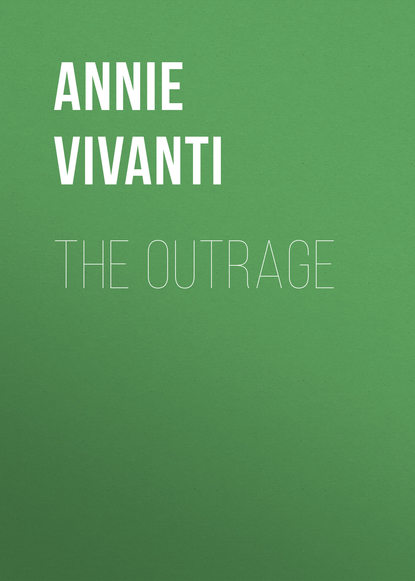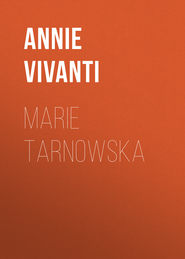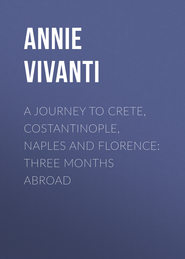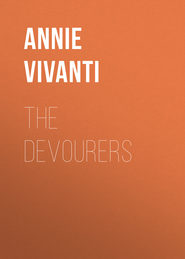По всем вопросам обращайтесь на: info@litportal.ru
(©) 2003-2024.
✖
The Outrage
Автор
Год написания книги
2018
Настройки чтения
Размер шрифта
Высота строк
Поля
CHAPTER III
Chérie's Diary
This is August the 1st. In three days I shall be eighteen. At eighteen one is grown up; one pins up one's hair, and one may use perfume on one's handkerchief and think of whom one is going to love.
The weather is very hot.
Cécile tells me that she saw Florian Audet ride past this morning; he was at the head of his company of Lancers, and looked very straight and handsome and stern; like Lohengrin, she said. I do not suppose he will remember my birthday with all this excitement about manœuvres and mobilizing.
There is no news at all about Amour. We are very unhappy about him.
Later.—Claude has written to say that he is ordered to Mons and that there may be an invasion, and that whatever happens we are all to be brave. We were not at all frightened until we read that; but now of course we are terrified out of our wits. Every time the bell rings we think it is the enemy and we scream. (Motto—to remember. It is better never to tell any one to be brave because it makes them frightened.)
August 2nd.—It is very hot again today. We wished we were in Westende. How nice it was there, bicycling on the sand in one's bathing dress! One day I rode all the way to the Yser and back. The Yser is a pretty blue canal and a man with a boat ferries you across for ten centimes to Nieuport. Of course that day I did not want to go to Nieuport because I was in my bathing dress; besides, I had no pocket and therefore no money.
I do not seem to write very important things in this diary; my brother Claude gave it me and said I was not to fill it with futile nonsense. But nothing really important ever happens.
There is no news of Amour.
Germany has declared war upon Russia; of course that is important, but I do not write about it as it is more for newspapers than for a diary. Louise says Germany is quite in the wrong, but as we are neutral we are not to say so.
Later.—We are going out for an excursion this afternoon as it is Sunday. We are going with Frieda to Roche-à-Frêne, to ramble about in the rocks, and Fritz is to follow us with a hamper of sandwiches, milk and fruit. Loulou is coming too. It was Mireille who suggested it. She said she thought we had been quite miserable enough. Mireille is very intelligent and also pretty, except that her hair does not curl.
Evening, late.—As nothing important has happened today—except one thing—I will write in this diary about the excursion.
(The important thing is that I saw Florian, and that he says he will come to my birthday party.) But now about the excursion. We were almost cheerful after being so wretched and frightened and unhappy all the morning about the war.
Even Loulou said that it was difficult to think that anything dreadful would happen with such a bright sun shining and the sky so blue. Frieda was sulky and silent, and kept dropping behind to be near Fritz. Loulou said that perhaps if Germany does not behave properly all the Germans will be sent away from Belgium. That means that Frieda would have to go. We should not be sorry if she did. She is so changed of late. When we speak to her she does not answer; when we laugh or say anything funny she looks at us with round, staring eyes that Mireille says are like those of a crazy cat that stalks about in the evening. I suggested that perhaps Frieda is in love, as I am told that it is love that makes those evening cats so crazy. It would be quite romantic and interesting if Frieda were in love. Perhaps if Fritz Hollander were not just a servant—Frieda is more of a demoiselle de compagnie—I should say that she might be in love with him. But he never looks at her except to scowl.
Today on our excursion I saw him do a funny thing. We came upon a spring of water hidden among the rocks, and while the others went on I stayed behind and clambered about, picking ferns. Fritz had also left the road, and was coming along behind us. As he caught sight of the water he stopped. He took a little notebook from his pocket, tore out a sheet, and having looked round as if he feared some one might be watching him, he scribbled something on the paper. Then he hurried back to the road and stuck the paper on the trunk of a tree. I thought it must be a love-letter or some message, so I slipped down the rocks and went to look at it. There were only two words written on the scrap of paper: "Trinkwasser—rechts."
I found that very strange. We never thought he knew German. I wondered why he did it and was going to ask him, but when he saw me he looked so cross that I did not dare. Later on, as we rambled about in the wood we came upon another piece of paper stuck on a tree. "Trinkwasser—links," was written on it. I told Loulou what I had seen, and she went straight to Fritz and asked him what it meant. He said he had done it for Frieda, so that she should know where to find water.
"She is a thirsty soul," he added, and he laughed, showing a lot of small, rabbity teeth. I do not think I have ever seen Fritz laugh all the time he has been with us; he does not look very nice when he does.
But—as Frieda says of his ears—I suppose he has the laugh God gave him.
The walk about Roche-à-Frêne was fantastic and beautiful.
After eating our sandwiches we lay on the grass and looked at the sky.
Perhaps I dozed, for suddenly I thought I was in Westende the day that the aeroplane passed above me as I swam far out in the sea. I heard the angry whirr of the engine, but this time it seemed to sound much louder than any I had ever heard.
I opened my eyes and there it was, above us, flying very high and looking for all the world like a beetle. It was all white except for a panel of sky-blue painted across the centre of each wing. I noticed that its wings were not straight as all the others I have seen, but sweeping backwards like those of a bird. I called out to the others, and Mireille said—
"How lovely it is! Like a white beetle with blue under its wings!"
Then an extraordinary thing happened. Fritz, who had been sitting some distance off looking at a paper, leaped to his feet as if he had been shot. He is short-sighted, and his glasses dropped off his nose into the grass.
"My glasses, my glasses!" he cried out, as if he were quite off his head. And Frieda actually ran to look for them, just as if she were his servant. "What did she say?" Fritz was crying; "like a beetle? white? with blue under its wings?" Frieda kept looking up and saying, "Ja! ja! ja!" and Fritz was calling for his glasses. They both seemed demented. The scarab-like aeroplane whirred out of sight.
Loulou had got up and was very pale. She made us go home at once and never spoke all the way.
It was when we were passing through Suzaine that we met Florian. He was on horseback. I did not think he looked like Lohengrin, but more like Charles le Téméraire, or the Cid, el Campeador.
He told us—and his horse kept prancing and dancing about while he spoke—that his regiment was encamped on the banks of the Meuse awaiting orders. They might be sent to the frontier at any moment. But, unless that happened, he said he would make a point of coming to see us on the 4th—even if he could only get an hour's leave. I reminded him that he had never missed coming to see us on that day since the very first birthday I had in Claude's house, when I was eight years old and my father and mother had just died in Namur.
Loulou always tells me that I was like a little wild thing, shrinking and trembling and weeping in my black dress, and afraid of everybody. On that particular birthday I wept so much that my brother Claude had the idea of sending for Florian—who is his godson—and asking him to try and make friends with me. I remember Florian coming into the room—this very room that I am writing in now—a boy of fourteen with short curly hair and very clear steely-blue eyes. A little like André but better-looking. He was what Loulou calls "tres-crâne." "Bonjour," he said to me in his firm, clear voice. "My name is Florian. I hate girls." I thought that rather a funny thing to say, so I stopped crying and gave a little laugh. "Girls," Florian continued, looking at me with disapproval, "are always either moping or giggling."
I stopped giggling at once; and I also left off moping so as not to be hated by Florian.
All these thoughts passed through my head as I watched him bending down and talking to Loulou very quickly and earnestly, while his horse was dancing about sideways all over the road. He certainly looked like a very young Charles le Téméraire or like the knight who went to waken la Belle au Bois dormant.
August 3rd.—We are very happy. Amour is safe! He is in the care of the station-master at Marché and André is going very early tomorrow morning to fetch him. André says that fetching dogs is not exactly a Service Militaire, but it is in the line of a Scout's work to sally forth in subservience to ladies' wishes, and obey their behests. He said he would wear Mireille's colours, and she gave him the crumpled Scotch ribbon from the bottom of her plait.
We have invited Lucile, Jeannette, Cécile and Cri-cri, to come tomorrow evening. It will not be a real birthday party with dancing as it was last year, because everything is uncomfortable and unsettled owing to the Germans behaving so badly. However neutral one may be, one cannot help being very disgusted with them. Even Frieda had a hang-dog air today when Loulou read out loud that the Germans had actually sent a note to our King proposing that he should let them march through our country to get at France! Of course our King has said No. And we all went out to the Place de l'Église to cheer for him this afternoon. It was André who came to tell us that all Bomal was going.
It was beautiful and every one was very enthusiastic. The Bourgmestre made a speech; then we sang la Brabançonne and the dear old Curé invoked a blessing on our land and on our King. We all waved handkerchiefs and some people wept. Marie and Mariette came too, but Frieda hid in the house, being ashamed of her country, as she may well be.
Fritz was there, and Mariette remarked that he seemed to be the only young man left in Bomal. It is true. All the others have either been called to military service or have gone as volunteers. The Square today was full of girls and children and quite old people.
I felt rather pleased that Fritz belongs to us. "A man in the house gives one a sense of security," said Loulou the other day. I reminded her of it as we were coming home, but she seemed worried and unhappy. "Since your brother has left," she said, "Fritz is very much changed. He does not behave like a servant; he never asks for my orders. Yesterday at Roche-à-Frêne he was like a lunatic. And so was Frieda." Poor Loulou looked very white as she said this, and added that she wished Claude would come back.
There is certainly something curious about Fritz. This evening he brought us the paper and stood looking at us while we opened it. I read over Loulou's shoulder that the Germans had marched into the Grand-duchy of Luxembourg and taken possession of the railways as if the place belonged to them. When I raised my eyes I saw Fritz staring at us and he had his hands in his pockets. He took them out when Loulou looked up and spoke to him.
She said, "Fritz, this is dreadful news"; and he said, "Yes, madam," and smiled that curious rabbity smile of his.
"Tell me," said Loulou, "did the master say anything to you when you saw him to the train the other night?"
"Yes, madam," said Fritz.
"What—what did he say?" asked Loulou very anxiously.
Fritz waited a long time before he answered. "The master said"—and he smiled that horrible smile again,—"the master said I was to protect you in case those dogs came here. That's what he said—those dogs! Those dogs—" he repeated, glaring at Loulou and at me until we felt quite strange and sick.
Little Mireille had just come into the room, and she asked somewhat anxiously, "What dogs are you talking about?"
Fritz wheeled round on her with a savage look. "German dogs," said he. "And they bite."
Nobody spoke for a moment. Then Loulou sighed. "Who would have conceived it possible a month ago!" she murmured. "Why, even ten days ago, no one dreamed of war."
Fritz took a step forward. "Some of us have been dreaming of war," he said—and there was something in his tone that made Loulou look up at him with startled eyes,—"dreaming of war, not for the past ten days, but for the past ten years." He rolled his eyes at us; then he turned on his heel and strode out of the room.
Loulou has written a long letter to Claude. But will it reach him?
CHAPTER IV
Mireille's Diary








